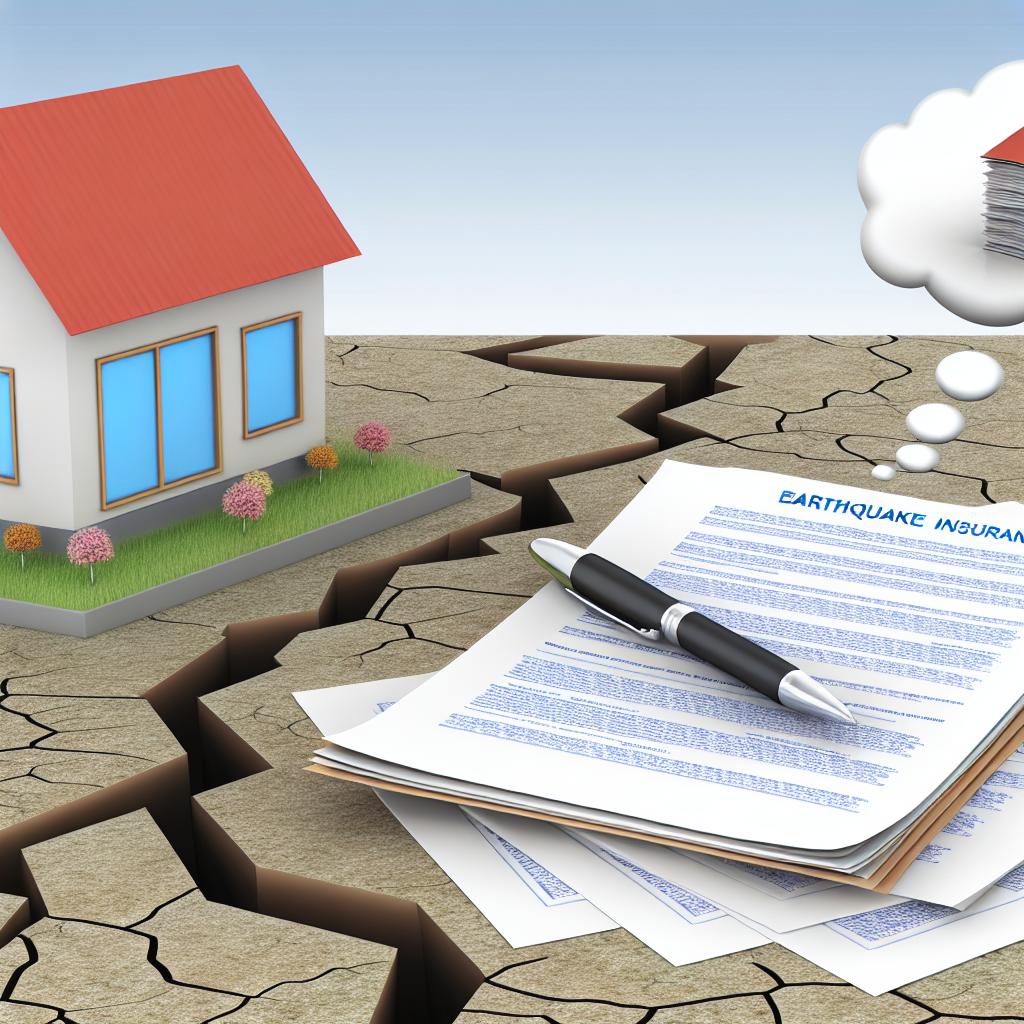Understanding Earthquake Insurance
Earthquake insurance is a specialized form of property insurance designed specifically to address the damages and losses that occur as a result of earthquakes. Unlike standard homeowners or renters insurance policies, which often cover a wide range of perils, damages that directly result from seismic activities are typically not covered under these standard plans. This makes earthquake insurance an essential consideration for individuals residing in regions that are susceptible to earthquakes. Let us delve into the various aspects of earthquake insurance to understand its coverage, necessity, and various considerations that impact its relevance for different homeowners.
What Does Earthquake Insurance Cover?
The coverage provided by earthquake insurance is focused on the specific consequences of seismic events. Typically, this insurance covers the following:
Repairs to your Home: Earthquake insurance generally provides financial assistance for repairs to your home following damage sustained in an earthquake. This can be particularly vital in situations where the damage is extensive and repair costs are high.
Replacement of Personal Property: If your personal belongings are damaged or destroyed during an earthquake, this insurance may cover their replacement. This includes furniture, electronics, and other personal items that can be costly to replace.
Additional Living Expenses: In the event that your home becomes uninhabitable due to earthquake damage, you may incur additional living expenses while your home is being repaired. Earthquake insurance often helps cover these expenses so that you can maintain your standard of living during the displacement period.
Other Structures on Your Property: Depending on the specifics of your policy, coverage may extend to other structures on your property such as garages, sheds, or fences that are damaged in the earthquake.
Do You Need Earthquake Insurance?
The decision to purchase earthquake insurance depends largely on your geographical location and associated risk factors. Here are some key considerations when evaluating the need for this insurance:
Factors to Consider
Several factors should influence your decision on whether earthquake insurance is necessary for your situation:
- Location: If you live in an area with a history of earthquakes, such as California or Alaska, the risk of experiencing earthquake damage is significantly higher. Residents in these regions are more likely to opt for earthquake insurance because of the increased likelihood of earthquake occurrences.
- Home Structure: The design and construction quality of your home can affect its ability to withstand seismic activity. Homes built with materials and technologies that enhance seismic resilience might not require as much coverage as those that are more vulnerable.
- Cost of Premiums vs. Potential Loss: When considering earthquake insurance, compare the cost of the insurance premiums against the potential financial loss you might incur if your home is destroyed or severely damaged in an earthquake. This cost-benefit analysis can be instrumental in your decision-making.
Assessing Your Risk
Understanding the seismic risk to your property requires comprehensive research and analysis. To accurately assess your risk, you may consider reviewing local seismic hazard maps, which are often made available by governmental bodies and organizations focusing on geology and natural disasters. These maps depict the historical and predicted seismic activity in various regions, helping you determine the likelihood of an earthquake in your area. Additionally, discussing your situation with an insurance professional who has specific knowledge about earthquakes and local risks can provide invaluable insights into your insurance coverage needs.
Additional Considerations
When considering earthquake insurance, it’s important to be aware of a few additional factors that might affect your decision:
High Deductibles: Earthquake insurance typically comes with a high deductible, which can influence a homeowner’s choice towards obtaining the insurance. Deductibles for earthquake insurance are generally calculated as a percentage of the home’s insured value, ranging from 2% to 20%. Therefore, it’s essential to ensure that these deductibles align with your financial capacity to withstand potential out-of-pocket expenses following an earthquake.
Premium Variability: The cost of earthquake insurance premiums can also be a significant determining factor. It’s advisable to research and compare different insurance providers to understand the diversity in policy details, premiums, deductibles, and exclusions that different companies offer. This information can help make a well-informed decision that best fits your situation.
Conclusion
In conclusion, while no one can precisely predict when or how severely an earthquake will strike, understanding your geographical risk and financial vulnerability is essential in deciding whether earthquake insurance should be a part of your property protection plan. It is vital to conduct a thorough evaluation of the insurance coverage it provides in relation to the potential cost of significant property damage that may ensue from an earthquake. Weighing the benefits and costs associated with earthquake insurance allows you to safeguard not only your home but also your financial well-being in the face of seismic uncertainties.
